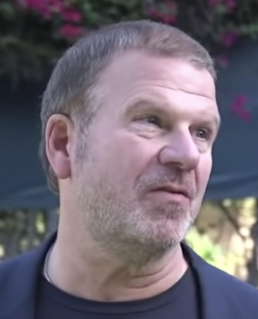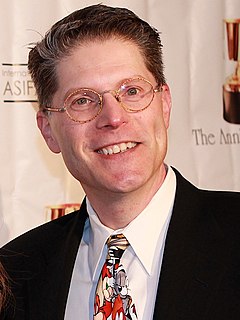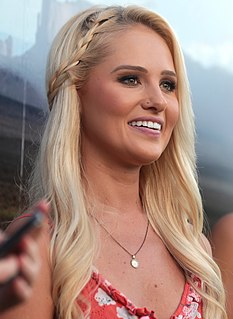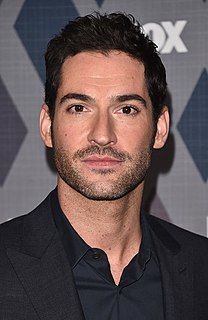A Quote by Marc Maron
I just wanted to be a good comic and had no sense of show business, but at some point you want the opportunity to write a show about your life.
Related Quotes
For years, people have been trying to talk to me about doing a show, and I wouldn't do one because I'm a serious business guy. I'm not going to do a stupid show. So, the opportunity came up with CNBC, and we started talking. It became a real business show. It's educational, people watch it, and it's great for small business.
Most people who go into show business want to go into show business. I wanted to be Porky Pig. That was my goal in life when I was five, to which my mother said, you can't be Porky Pig. You're Jewish! I don't think she realized what I wanted to do with the pig...I didn't want to eat him, I wanted to voice him.
You often hear that people go into show business to find the love they never had when they were children. Never believe it! Every comic and most of the actors I know had a childhood full of love. Then they grew up and found out that in the grown-up world, you don't get all that love, you just get your share. So they went into show business to recapture the love they had known as children when they were the center of the universe.
Writing has nothing to do with publishing. Nothing. People get totally confused about that. You write because you have to - you write because you can't not write. The rest is show-business. I can't state that too strongly. Just write - worry about the rest of it later, if you worry at all. What matters is what happens to you while you're writing the story, the poem, the play. The rest is show-business.
When I finally got my break in TV, as a staff writer, I always wanted to be at the top of that pyramid. I always wanted to make the decisions. I always wanted to be the one that was saying, "This is what the show is, and this is what the show is not. This is where we're going. It's going to be this kind of series." It was just something I always had my eye on, when I started in the business.


































